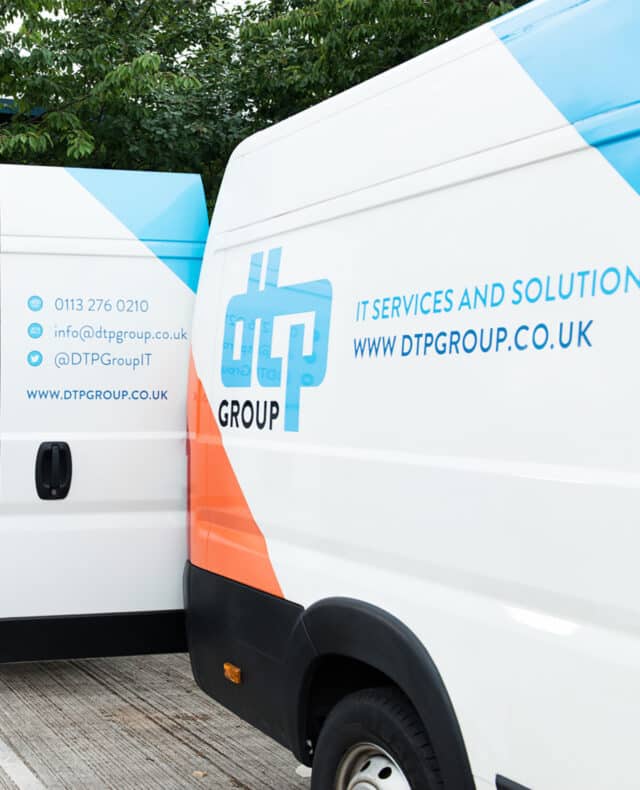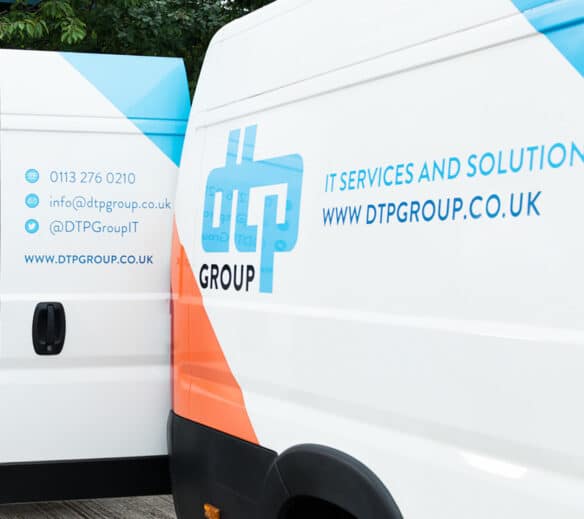
Ashley O'Connor
Marketing Executive
August 15, 2022
In 2019, Leeds City Council (LCC) passed a motion to declare a climate emergency. As a result of this motion, the city set out to reduce carbon emissions, aiming to become carbon neutral by 2030. To achieve their goal, the council have introduced various initiatives across the city, supporting both residents and organisations to reduce their environmental impact.
One initiative the council introduced, allowed Leeds based businesses trial the use of electric vehicles within their daily operations. The purpose of the project was to encourage the shift to ultra-low emissions vehicles by providing tailored insights into the cost and environmental benefits of their use.

PLANET. PEOPLE. COMMUNITY.
In line with DTP’s sustainability mission to become net zero by 2024, we’re proactively seeking opportunities to better each of our practices, with every initiative bringing us closer to our goal. According to the UK Government, transport accounted for 27% of the UK’s total greenhouse gas (GHG) emissions in 2019, with road vehicles contributing 91% of this share. Distribution is an essential aspect of DTP’s business operations and presents a key focus to reduce our impact on the planet.
As well as GHG emissions, road vehicles emit other harmful substances that contribute to air pollution. As part of our sustainability mission, we must consider the impact our operations have on air quality, and how reducing this impact can improve the quality of life for our people, and the local community.
-

LEEDS’ PLAN FOR CARBON NEUTRALITY
DTP Group are fortunate to be based in Leeds, where the council holds a shared outlook on sustainability. The City’s journey to become carbon neutral by 2030 is thoroughly underway, with emissions dropping 40% between 2000 and 2021.
In addition to environmental benefits, Leeds Climate Commission predicts that the city’s goal will save £651 million a year and create 1,500 jobs within the next decade.
-

The council is leading by example, boasting the largest electric vehicle fleet of any local authority in the UK, planning to procure only Ultra Low Emission Vehicles by 2030. The switch to electric vehicles between 2018 – 2025 will save 235 tonnes of CO2 emissions across their fleet each year.
Initiatives across the city such as free parking for electric vehicles, and an ever-increasing amount of EV charging points are influencing a high uptake in low emission vehicles. Leeds has a higher than national average uptake in electric vehicles, with DVLA data showing that low emission vehicle registrations doubled in 2021.
-

COST BENEFITS
Over the course of DTP’s 1-month trial, the electric van saved our business £135. On the surface this figure seems relatively low, however, over a longer period the significance is clearly illustrated. Our telematics dashboard projected that over the course of 5 years, an estimated £7,630 would be saved by DTP through switching to an electric distribution vehicle. Considering 40% of vans kept by businesses are aged between 3-10 years old, and 17% are over 10 years old, the savings become remarkable, helping recoup most of the vehicle purchase cost.
-

ENVIROMENTAL BENEFITS
The telematics dashboard also revealed clear environmental benefits of using a more sustainable distribution vehicle. Over the course of 1 month, DTP reduced CO2 emissions by 91KG, potentially amounting to over 1 tonne of CO2 emissions being eliminated within a year.
DTP’s participation in the trial scheme has helped create a compelling business case to make the switch to ultra-low emission vehicles. Over the period of the trial, we discovered a substantial reduction in our carbon footprint, supporting us in our mission to become carbon neutral by 2024. The switch not only makes sense environmentally, but the projected savings create a strong case financially.
Thanks to the insight we gleaned from the trial offered by Leeds City Council, we anticipate that in our next vehicle review, EV’s will become the one and only choice for the DTP delivery fleet.

Learn more about DTP Group’s various sustainability initiatives
Sustainable Impact









